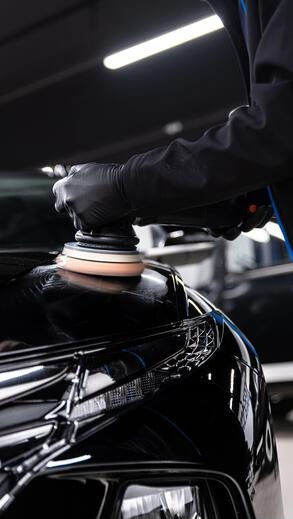Why Regular Engine Cleaning is Important for Your Car
- autoshineje
- Jun 11
- 4 min read
Keeping your car in good shape involves various maintenance tasks, one of which is regular engine cleaning. While it may not always be at the top of your to-do list, neglecting your engine can lead to serious problems down the road. Understanding the importance of engine cleaning can help prolong the life of your vehicle, improve performance, and save you money.

Understanding Engine Cleaning
Engine cleaning involves the process of removing dirt, grime, and grease from the engine bay and its components. This practice not only improves the visual appeal but also enhances the engine's efficiency. There are several methods for cleaning an engine, ranging from simple DIY techniques to professional detailing services.
Regularly cleaning your engine can help you identify potential issues before they become serious problems. Dirt and debris can easily disguise leaks, wear, and other signs of wear and tear.

Benefits of Engine Cleaning
Improved Performance
A clean engine runs more efficiently. When dirt and debris build up, they can cause various components to work harder than they should. For example, a dirty air filter or clogged fuel injectors can restrict airflow and fuel flow, leading to decreased performance. Regular engine cleaning helps maintain optimal function.
Identification of Problems
Cleaning your engine gives you a clear view of its condition. By removing accumulated grime, you can more easily spot leaks, corrosion, or cracks. Early identification of these issues can save you from more extensive and costly repairs later on.
Enhanced Longevity
Just like any other part of your car, a clean engine can last longer. A well-maintained engine is less likely to suffer from wear and tear. Regular cleaning can help ensure that your engine components don’t corrode or suffer from dirt accumulation that can lead to breakdowns.
Resale Value
If you plan to sell or trade in your car, a clean engine can add significant value. Potential buyers often see a dirty engine as a red flag, indicating poor maintenance. A clean engine creates an impression of a well-cared-for vehicle, increasing its market value.
Safety
A clean engine contributes to a safer driving experience. While this might not be the first thing that comes to mind, an engine that runs properly reduces the risk of breakdowns while on the road. Additionally, certain issues like fluid leaks can pose hazards if not identified quickly.

When to Clean Your Engine
The frequency of engine cleaning depends on several factors:
Driving Conditions: If you frequently drive in dusty or off-road conditions, your engine may need more frequent cleaning. Similarly, if you live in an area with heavy rain or snow, corrosion can occur more quickly.
Engine Condition: If your engine starts to look dirty or you notice a decrease in performance, it may be time for a cleaning. Similarly, if you perform regular maintenance checks and identify any potential issues, addressing them quickly can prevent further complications.
Type of Fuel: The quality of the fuel you use can also impact how often your engine should be cleaned. Higher-quality fuels tend to leave fewer deposits, while low-quality fuels can lead to greater buildups.
As a general guideline, consider cleaning your engine every 6 to 12 months. However, adjust this timeline depending on your driving habits and engine condition.
The Engine Cleaning Process
If you're unsure about how to clean your engine, here are some steps to follow:
Preparation:
Before starting, gather your materials. You will need a degreaser, some brushes, a hose (consider using a pressure washer for great results), and microfiber cloths. Make sure the engine is cool to the touch.
Cover Sensitive Parts:
To prevent any water damage to electrical components and delicate parts, cover areas like the air intake, battery, and exposed wiring with plastic bags or aluminum foil.
Apply Degreaser:
Spray a degreaser over the engine, focusing on heavily soiled areas. Let it sit for about 10-15 minutes to allow it to break down dirt and grease.
Scrub the Engine:
Use brushes to scrub down the engine bay. Make sure to get into tight corners where grime might accumulate.
Rinse:
Rinse the engine bay gently but thoroughly, ensuring that all the degreaser and dirt are washed away.
Dry:
Use your microfiber cloths to dry the engine. You can also let it air dry or start the engine and let it run for a few minutes to help with drying.
Keep in mind that if you're unsure or uncomfortable doing this yourself, you can always opt for professional services that specialize in engine detailing maintenance.
Common Mistakes to Avoid
When cleaning your engine, there are a few common mistakes you should avoid:
Using Harsh Chemicals: While it might be tempting to use stronger cleaning products, they can damage engine components. Stick to mild degreasers that are safe for automotive use.
Neglecting Safety Precautions: Always wear gloves and goggles when cleaning your engine to protect your skin and eyes from chemical exposure.
Forgetting to Rinse Thoroughly: It’s essential to completely rinse off all cleaning products. Residue could cause harm to engine components or affect performance.
Ignoring Corrosion or Rust: Once you clean your engine, take the time to inspect it for any signs of corrosion or rust. Address these issues promptly to prevent further damage.
Final Thoughts
Regular engine cleaning is an essential part of car maintenance that many often overlook. By investing time in understanding the process and its benefits, you can ensure your engine runs efficiently. Cleaner engines lead to better performance, longer lifespans, increased resale value, and safer driving.
Incorporating engine cleaning into your maintenance routine can seem daunting at first, but it pays dividends in the long run. Whether you choose to tackle it yourself or seek professional help, your engine will thank you for the care. So, the next time you think about your vehicle maintenance, don’t forget the importance of clean engines. Regular upkeep can make all the difference.




Comments